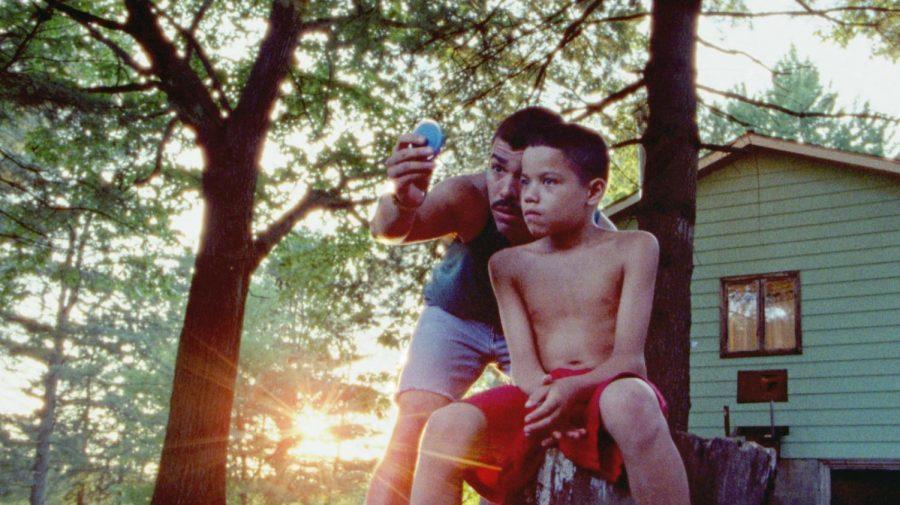‘We the Animals’: A Portrait of Childhood
Evan Rosado and Raul Castillo in “We the Animals.”
August 26, 2018
The language of film and the language of literature are two distinct lenses for looking at the world. Literature’s focus is the individual’s perspective, the subjective nature of a person’s perspective, words on a page beaming themselves directly into the reader’s mind. Film, as a rule, is less well-equipped to transplant the viewer into another person’s point of view. Images on a screen have the undeniable connotation of objectivity; a camera can’t help but capture the truth, right?
Jeremiah Zagar’s virtuosic new film “We the Animals,” based on the 2017 novel of the same name by Justin Torres, shatters this already frayed dichotomy — subjective and objective, individual and collective — in ways both visually stunning and emotionally affecting.
Without a traditional plot or narrative structure, “We the Animals” is an exercise in impressionism, emphasizing perception over objectivity, emotions over facts.
The titular ‘animals’ are brothers Jonah, Joel and Manny (Evan Rosado, Josiah Gabriel and Isaiah Kristian), boys with close-cropped hair, wide, liquid eyes and lithe, skinny pre-teen bodies. They yell and cry and run and beat their chests with reckless abandon in that absolutely unselfconscious way that only kids can.
Sharing a bed — there’s a recurring shot of the boys asleep, arms slung over one another — and speaking in the first-person-plural in voiceover, the brothers seem almost to be a single organism, each an inextricable extension of the others.
Ma and Paps (Sheila Vand and Raúl Castillo) deeply love their kids, hugging and dancing together, Paps peppering his speech with Spanish pet names. But they have a passionate, volatile relationship, swinging from giggling and making out like teenagers to cowering from sounds of Paps hitting Ma.
At first, the boys and their parents live a relatively stable working-class life, their mother working on an assembly line, their father as a night-shift security guard. But the precarity of the family’s life peeks through: Paps loses his job; Paps walks out, and when Ma can’t get herself out from under the covers, the boys resort to stealing food.
As the boys witness the fallibility of their parents and start to grow up, they also begin to grow apart for the first time, and we focus in on Jonah. He’s different than his brothers — a little quieter, a little more withdrawn, and as the boys age and his nascent sexuality begins to emerge, the differences widen between them.
Jonah keeps a secret diary of sorts to chart these shifting borders of his life, filled with a mixture of his writing and scribbled crayon drawings. He writes and draws in the early hours of the morning, curled up beneath the bed he shares with his brothers, tucking the book away between the bedframe and mattress where it won’t be found.
The movie’s visuals are wonderful, with the pleasing, fine-grained quality of film and a warmth like sunlight through trees just before dusk.
But the most beautiful and moving images and what truly sets the film apart, are the scenes where we are transported into Jonah’s drawings as they come to life. These moments, a window into his deepest and most private feelings, combined with the film’s lovely, tender score, convey both the simple wonders and the complex heartbreaks of childhood and the transition into adolescence. These are what make “We the Animals” undeniably stunning.
“We the Animals” opened at Village East Cinema on Friday, Aug. 17.
A version of this article appeared Sunday, Aug. 26 print edition. Email Alex Cullina at [email protected].


























































































































































